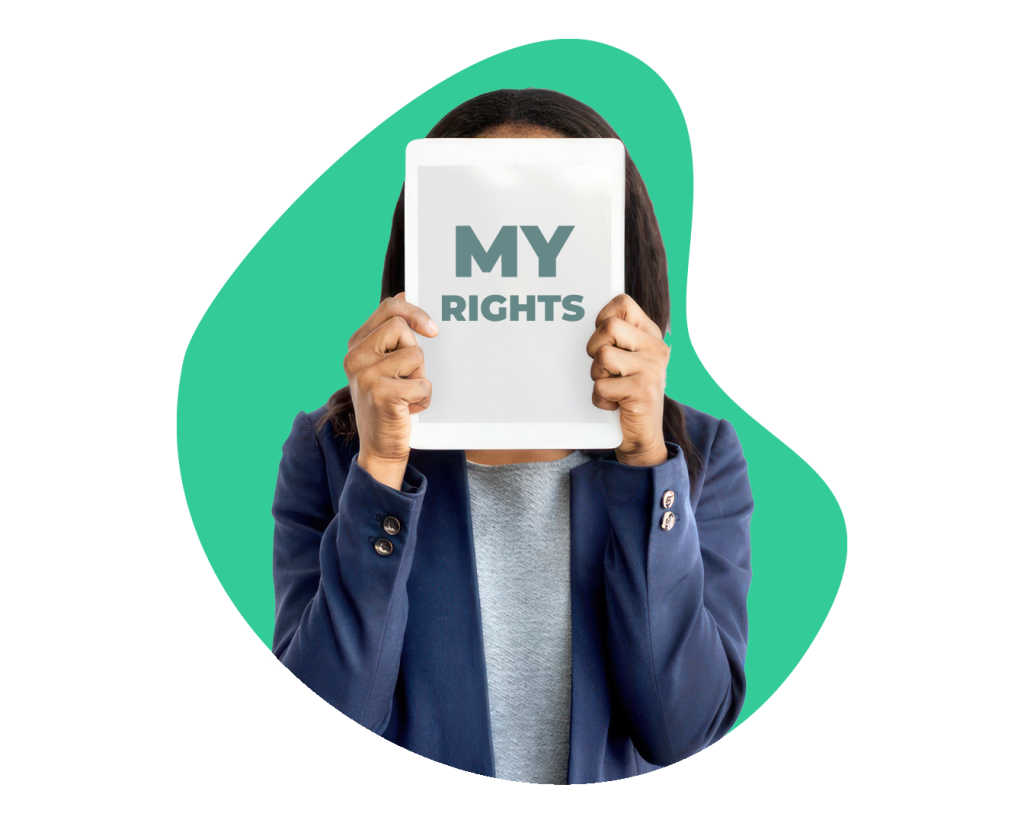Know Your Rights
Protecting Immigrants in Your Community
The information on this page is provided as educational material and is not legal advice.
Protect Yourself Today
No matter one’s immigration status, everyone living in the U.S. has certain basic rights under the U.S. Constitution. It is essential that individuals, businesses, faith-based organizations, and educators understand these rights and take action to protect themselves and their communities.

Know Your Rights:
For Individuals
Regardless of your immigration status, you have rights that you can assert in interactions with law enforcement and immigration officials.
Your Basic Rights
You have the right to remain silent – You do not have to answer questions from immigration officers or law enforcement.
You do not have to open your door – ICE cannot enter without a warrant signed by a judge.
You have the right to an attorney – If detained, ask to speak to a lawyer before answering any questions.
Do not sign anything without legal advice – Some documents may waive your rights.
Carry valid immigration documents if you have them – If you do not have legal status, do not carry false documents.

Know Your Rights:
For Businesses & Employers
Businesses play a crucial role in protecting the rights of immigrant employees and ensuring that they are treated fairly under the law.
Employer Rights & Responsibilities
ICE must have a warrant to enter non-public areas – Do not allow immigration officials into employee-only areas without proper legal documentation.
Do not retaliate against employees who assert their rights – It is illegal to discriminate or take action against workers based on their immigration status.
You are not required to share employee information – Do not provide employment records or information without a legal subpoena or warrant.
Provide Know-Your-Rights training – Ensure all employees understand their legal rights in case of a workplace raid or immigration enforcement action.

Know Your Rights:
For Churches & Faith-Based Organizations
Faith communities are often places of refuge and support for immigrants. Knowing how to respond in the event of immigration enforcement actions can help protect your congregation and community.
Church Protections & Responsibilities
Churches, temples, mosques, and synagogues are considered “sensitive locations” – ICE and immigration officials are discouraged from conducting enforcement actions inside places of worship.
You are not required to allow ICE entry without a warrant – Ask for identification and legal documentation before allowing access.
You can provide sanctuary and resources – Faith-based organizations have historically been safe havens for immigrants in need.
Educate your congregation – Offer Know-Your-Rights trainings and resources to undocumented members.

Know Your Rights:
For Educators & Schools
Schools should be safe spaces where all students—regardless of immigration status—can learn without fear. Educators and administrators can take steps to ensure that immigrant students and families know their rights and protections.
Key Protections for Schools
Public schools are safe spaces – Schools are also considered “sensitive locations,” meaning immigration enforcement actions should not occur on school grounds.
You are not required to provide student information to ICE – Do not share personal or enrollment records without a legal subpoena.
Students have the right to attend school regardless of status – The Supreme Court case Plyler v. Doe guarantees the right to public education for all children in the U.S.
Provide Know-Your-Rights resources for families – Distribute materials in multiple languages to ensure immigrant families understand their legal rights.

Take Action:
Protect Your Community
Understanding and asserting your rights is the first step in creating safe and just communities. Whether you are an individual, business owner, faith leader, or educator, you can help protect immigrants and ensure that their rights are upheld.